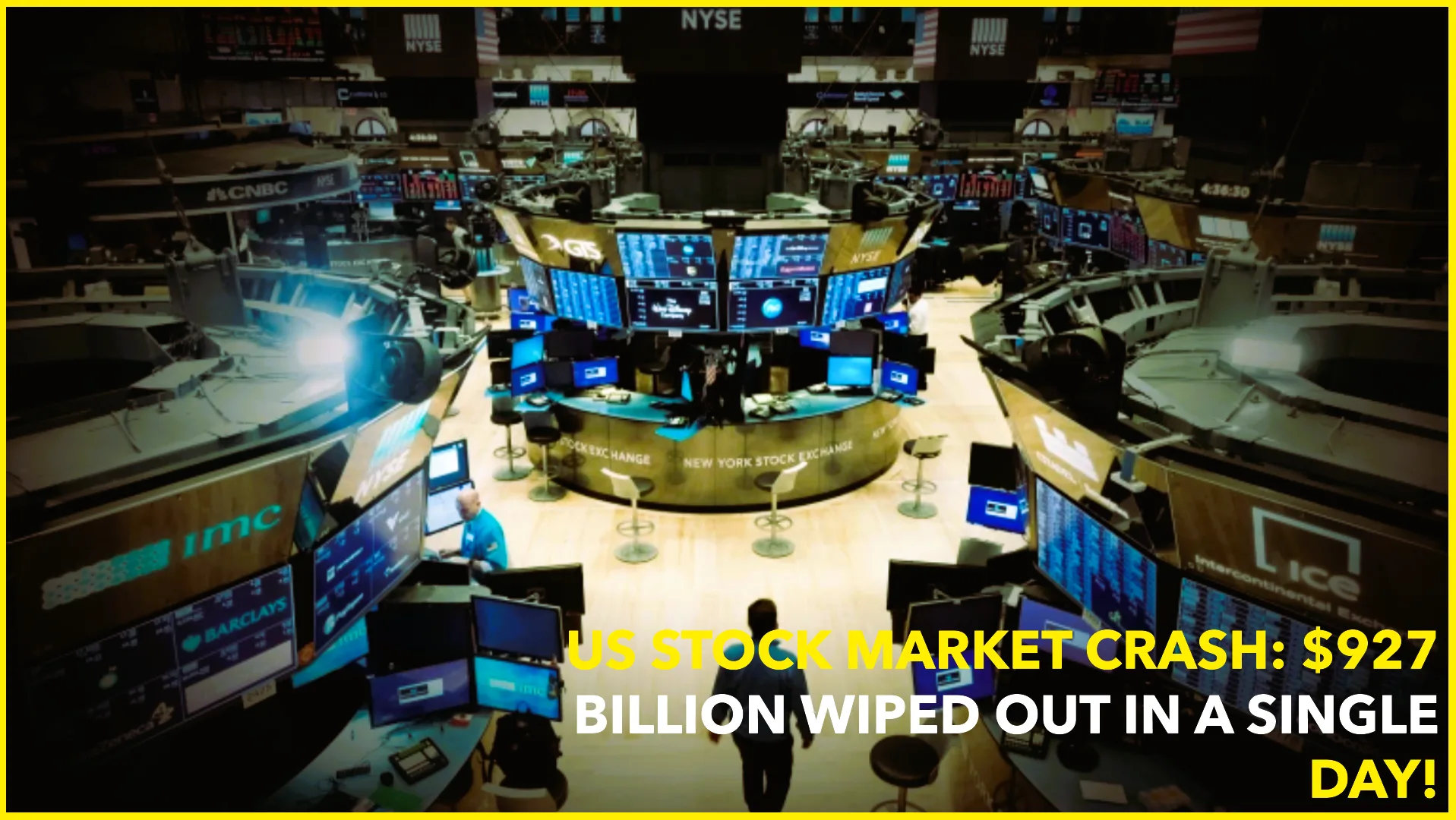The US stock market experienced a sharp decline, wiping out approximately $927 billion in market value within a single trading session. According to an analysis from Watcher Guru, this drop marks the worst market performance of the year, raising concerns among investors and analysts.
Major Indices Experience Sharp Declines
Leading stock indices, including the S&P 500, posted significant losses as investor sentiment weakened. The S&P 500, a key benchmark that reflects the performance of 500 large companies listed on US stock exchanges, fell sharply due to growing worries over economic indicators and trade uncertainties.
Other major indices, such as the Dow Jones Industrial Average and the Nasdaq Composite, also experienced notable declines. The Dow Jones, which tracks 30 large, publicly-owned companies, saw its value dip considerably, while the Nasdaq, known for its concentration of technology stocks, suffered due to a sell-off in tech shares.
Economic Data and Tariff Concerns Weigh on Markets
Investor confidence was shaken by recent economic data, which hinted at potential challenges ahead. Key indicators, including inflation rates and consumer spending figures, have sparked fears that the economy may be slowing down. Inflation remains a persistent concern, as rising prices continue to pressure both businesses and consumers.
Adding to the uncertainty are renewed concerns over tariffs and trade policies. Speculation about potential changes to tariffs, particularly in sectors such as manufacturing and technology, has created volatility in the market. Investors worry that increased tariffs could lead to higher production costs, reduced corporate profits, and slower economic growth.
Market Analysts Reassess Economic Outlook
The sudden market downturn has prompted analysts and financial experts to revisit their economic forecasts. Many now question whether the US economy can sustain its current pace of growth amid rising inflation and potential trade disruptions.
“Investor sentiment has shifted rapidly as concerns about inflation and trade policy uncertainties intensify,” said a senior market strategist at a leading investment firm. “This level of market volatility reflects the growing anxiety among investors, who are closely watching both economic indicators and government policies.”
Some analysts believe the recent decline could be a temporary market correction, while others fear it may signal a more prolonged period of instability. The Federal Reserve’s monetary policy decisions, particularly regarding interest rates, will be closely monitored in the coming weeks. Higher interest rates can increase borrowing costs for businesses and consumers, potentially slowing economic activity.
Impact on Key Sectors and Global Markets
The market sell-off affected a wide range of sectors, with technology, finance, and consumer goods experiencing some of the steepest declines. Tech giants, which have been major drivers of market growth in recent years, saw their stock prices tumble as investors shifted away from high-risk assets.
Financial stocks also faced pressure as concerns over interest rates and economic growth weighed on the sector. Meanwhile, consumer goods companies, which are sensitive to changes in consumer spending, experienced declines due to fears of reduced demand.
Global markets also felt the impact of the US sell-off. Major indices in Europe and Asia fell as investors reacted to the negative sentiment in the US. The interconnected nature of global financial markets means that volatility in one region often leads to ripple effects worldwide.
Looking Ahead: Uncertainty Remains
As investors assess the implications of this significant market drop, many are adopting a cautious approach. The coming weeks will be crucial in determining whether the market can recover or if further declines are on the horizon. Economic data releases, corporate earnings reports, and policy announcements from both the US government and the Federal Reserve will all play a role in shaping market sentiment.
While some investors see the recent decline as a buying opportunity, others remain wary of the risks posed by inflation, interest rates, and trade uncertainties. As the market continues to navigate these challenges, volatility is expected to remain high, making it essential for investors to stay informed and adapt their strategies accordingly.
Disclaimer: This post is for informational purposes only and does not constitute financial advice. Investors should conduct their own research or consult a financial professional before making investment decisions.










